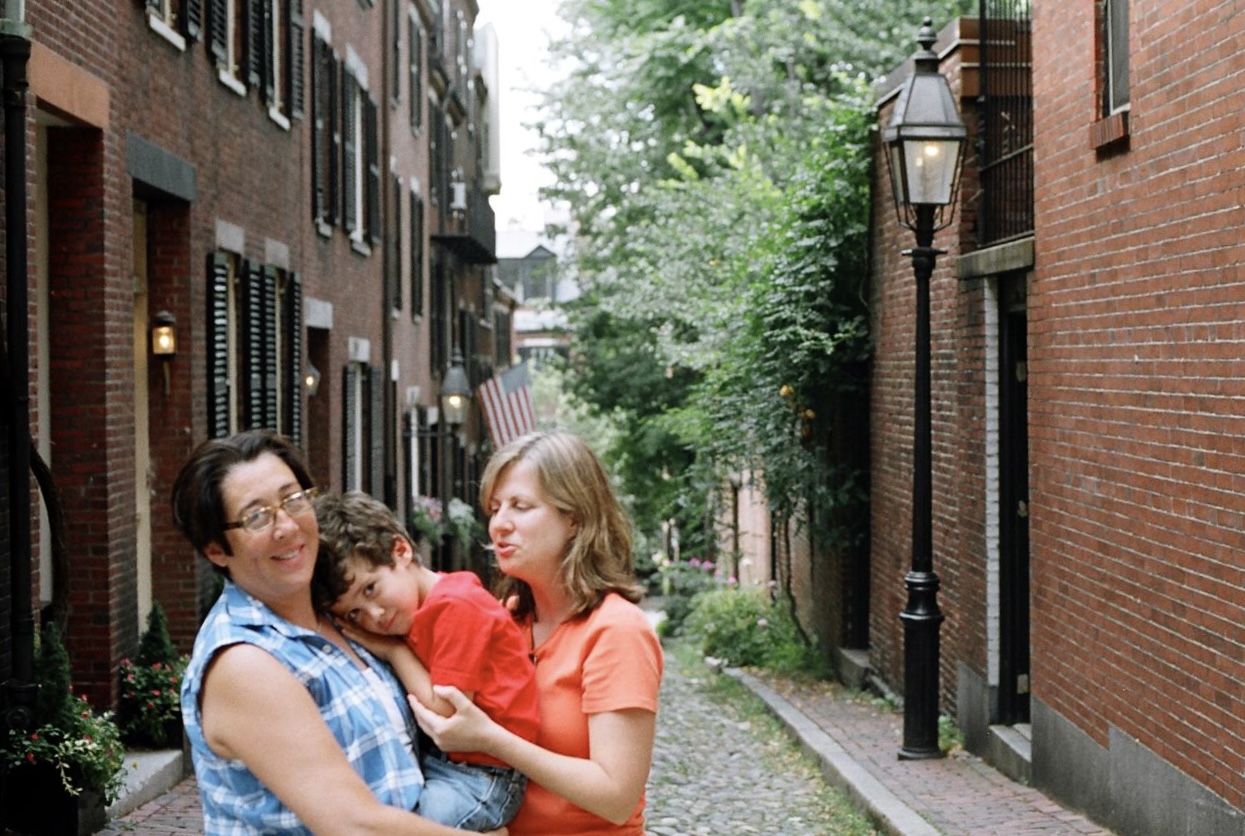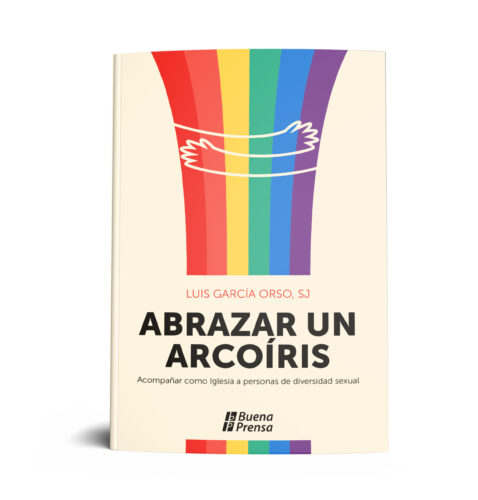I will always be grateful my two gay mothers decided to baptize me in the Catholic Church. I am grateful, too, that I spent the bulk of my childhood outside of it.
In 2001, relatively new to Brooklyn, N.Y., the “city of churches,” my parents called our neighborhood parishes in hopes of scheduling a baptism for their infant son. Each parish office met their calls with confusion. What could they say to these parents? What was allowed? “We’ll call you back,” was the only response my two mothers received.
My mothers eventually turned to options across the East River in search of an available baptismal font. They decided to phone the Church of St. Francis Xavier on 16th Street in Manhattan. My parents understood that the parish had a reputation for its welcoming culture. Plans were arranged swiftly for my baptism at a Sunday Mass in the fall. I am told it was a lovely occasion, that my mothers and I were surrounded by supportive family members and that afterwards, I had my very first taste of chocolate cake.
I will always be grateful my two gay mothers decided to baptize me in the Catholic Church. I am grateful, too, that I spent the bulk of my childhood outside of it.
What followed that grace-filled day for my family was a decade spent away from the church. My mothers, both Catholic and born of Cuban and Mexican heritages, found themselves and their sexualities—their human fact—at odds with the practiced faith of their childhoods and their families. During their adulthoods, Catholic communities with two-dimensional preaching on temptation and marriage sounded unhelpful echoes of very real estrangements that, by the time of my baptism, had already deeply stressed and damaged connections to their own parents and families.
My parents were concerned about how I would see myself in relation to the church if I grew up within their familiar communities. The fear and self-loathing they learned from their family’s past closed-mindedness, and the Catholic practices which informed it, were not things they cared to pass on to me, especially should I happen to be gay myself. They wanted to raise me in a community where I could find my relationship with God without being told by peers or pastors that I was strange for having two mothers.
This desire to avoid harm by way of confused eyes brought one of my mothers and me, seven- or eight-years-old at the time, to our local United Methodist church. The church’s inclusive creed was displayed in white lettering on a black felt marquee. It listed all who were welcome, with an explicit inclusion of those “straight or gay.”
After many years, my mother’s desire to return to the Catholic Church reached a fever pitch. She had begun a practice of centering prayer and felt called to the Eucharist like never before. The care she had taken with finding a new faith community for us was redirected towards finding a Catholic parish after more than 10 years. My mother could only rely on her diligence. She scheduled personal meetings with several pastors, but none could guarantee that her son would feel welcome.
After many years, my mother’s desire to return to the Catholic Church reached a fever pitch.
But when she first stepped foot in the Oratory Church of Saint Boniface, in Brooklyn, she knew she had found something special. The Oratory’s warm welcoming of LGBTQ families went hand-in-hand with its stewardship of the arts, intelligent preaching and vibrant lay involvement.
These wonderful things were not clear to me at first. I thought, naively and from a place of fear, that my mother and I were entering into a faith that would exclude our family. I understood that the lovely Methodist congregation we were leaving had set some sort of irreplicable standard of welcoming Christian acceptance. During my first Masses at the Oratory, I held my tongue in silent protest at certain lines of the Apostles Creed, and I withheld verbal renewal of my baptism.
My quiet resistance soon came to an end. I was 12 or 13 when my family joined the Oratory, so I had some catechism classes to make up. I studied for about a year under the then-parochial vicar, Anthony D. Andreassi, C.O. (He now lives in residence at the Oratory.) Father Anthony treated my education with great personal care. He would eventually become my Confirmation sponsor, my padrino. Still a counsel to me, he guided me through high school, college and my young adulthood in New York.
Father Anthony and the priests and parishioners at the Oratory saw my mothers and me as children of God. Their accommodations were not a matter of condescension, nor were they a matter of a willful blindness to our realities. Our faith was engaged and educated in recognition of, rather than in spite of, our estrangement from the church. I was a new parishioner who needed to be brought up to speed with the rest of the flock.
Father Anthony and the priests and parishioners at the Oratory saw my mothers and me as children of God.
This model of hope, and the care taken to educate me, taught me that my fears and silent protests were misguided. I had nothing to fear at the Oratory, where a cohesive Catholic community was actually living the Gospel. I was afforded the opportunity to live before God in the mystery of faith. And as a young teenager, I had the wherewithal and attentiveness to appreciate the complexities of my faith.
My story is a very happy one. I have been nurtured by the Oratory with its trust in the love of God and the Holy Spirit’s work in my life. Less hopeful communities are colder, and slower to welcome families like mine. Instead, I have been helped to stand steadfastly in my faith through swarms of my own questions about its social teaching on the fertility practices by which I was conceived, about the love my mothers shared, about the strange and wonderful new world of relationships I have with half-siblings born of the same sperm donor.
My mothers, all those years ago, took the first brave step into our incensed mysteries by choosing to baptize me against their own justifiable apprehensions and against the apprehension of Catholic parishes themselves. They stepped forth with great hope. It is my own hope that the whole church might grow in this welcoming capacity to bring more pilgrims home.




